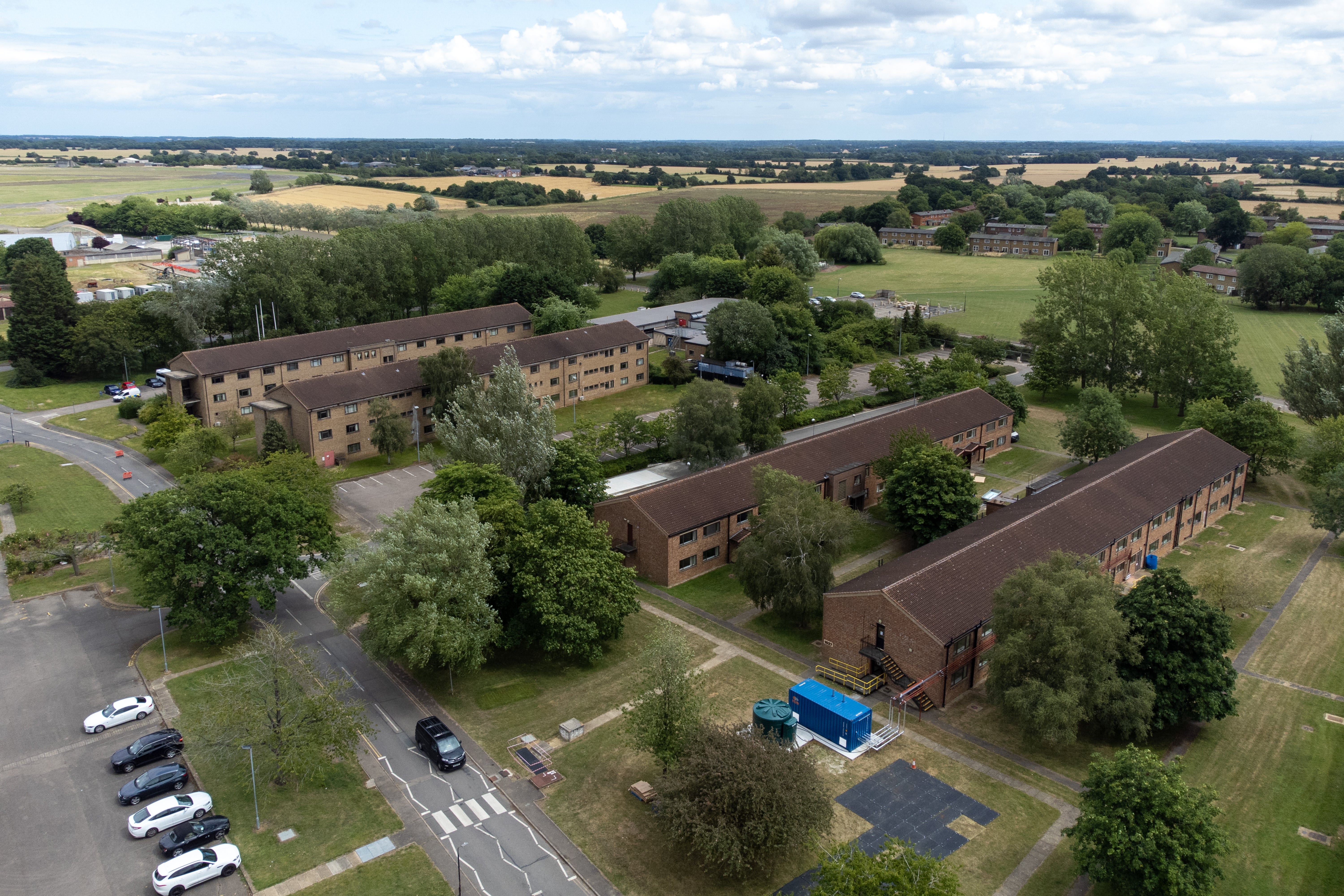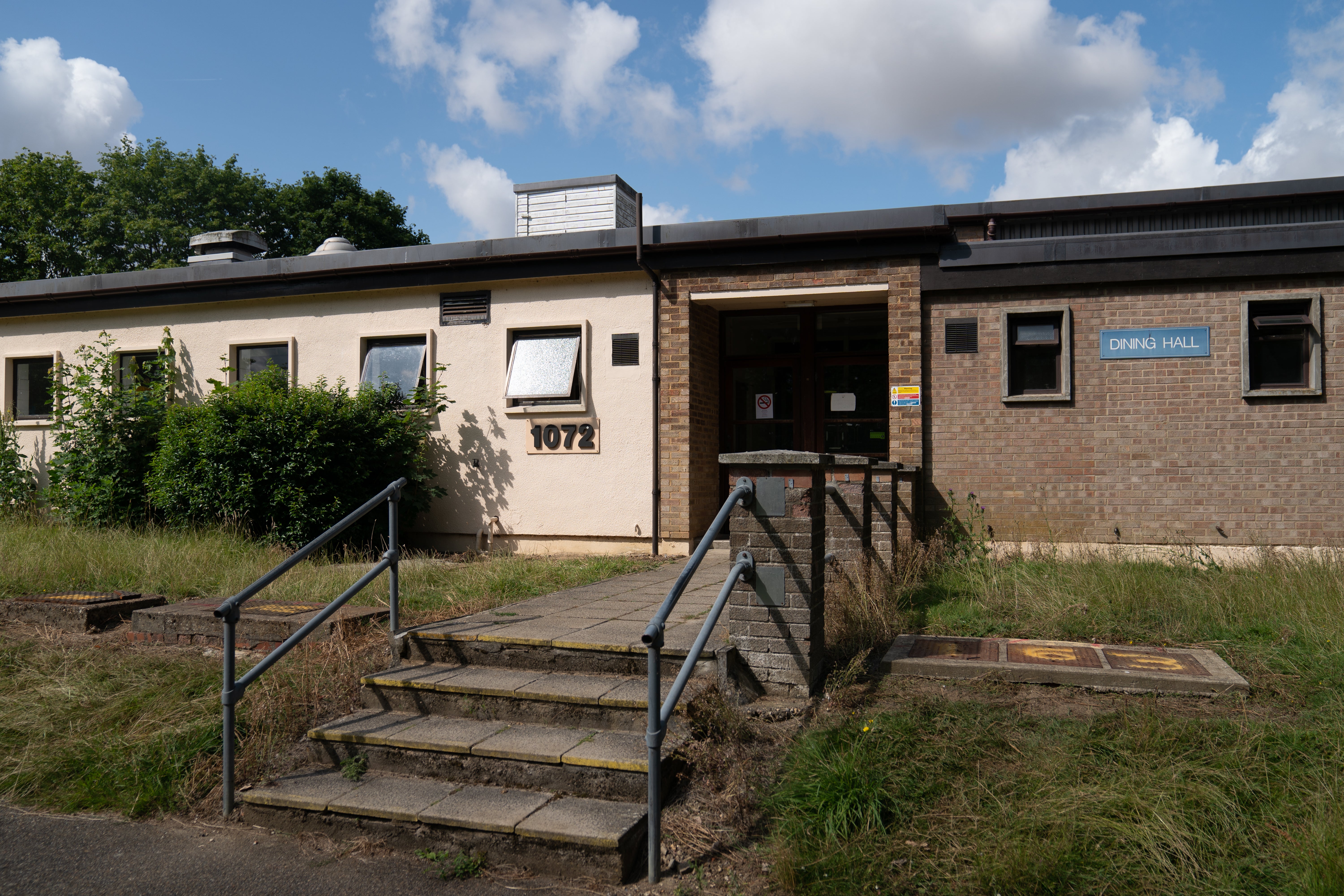‘I felt like I was in a cage’: Flagship asylum site Wethersfield should not house migrants, court told
Charities say a mental health crisis is unfolding among migrants at the Wethersfield asylum site in Essex
Your support helps us to tell the story
From reproductive rights to climate change to Big Tech, The Independent is on the ground when the story is developing. Whether it's investigating the financials of Elon Musk's pro-Trump PAC or producing our latest documentary, 'The A Word', which shines a light on the American women fighting for reproductive rights, we know how important it is to parse out the facts from the messaging.
At such a critical moment in US history, we need reporters on the ground. Your donation allows us to keep sending journalists to speak to both sides of the story.
The Independent is trusted by Americans across the entire political spectrum. And unlike many other quality news outlets, we choose not to lock Americans out of our reporting and analysis with paywalls. We believe quality journalism should be available to everyone, paid for by those who can afford it.
Your support makes all the difference.The government’s main asylum accommodation site at a former RAF base in Essex is not currently suitable for any migrants, the High Court has heard.
Four migrants who were housed at the site RAF Wethersfield have taken the Home Office to court over the accommodation, arguing that the state is failing to screen vulnerable people properly before they are moved to the Essex base.
Alex Goodman KC, representing one of the asylum seekers, told the High Court on Thursday that the remote airbase, which can house up to 580 migrants, was not currently suitable for anyone to live in.
Prime minister Sir Keir Starmer has said previously that he wants to close Wethersfield but the Home Office is yet to make a decision on the future of the site.
The Ministry of Justice has considered using it as a prison if asylum seekers are moved out.

Three of the claimants are victims of trafficking who should not have been initially placed in the “prison-like” accommodation under the government’s own guidelines, the court heard.
The fourth claimant is an Afghan asylum seeker whose mental health deteriorated so significantly at Wethersfield that he attempted suicide. Mr Goodman told the High Court that asylum seekers who are not deemed vulnerable by the Home Office’s screening process are also being put at risk by the conditions at the site.
“The policy as operated provides no opportunity to say: ‘I don’t fit into the [vulnerability] categories but the prison-like environment [at Wethersfield] is driving me crazy,’” the court was told.
The Afghan asylum seeker, who was at Wethersfield from September 2023 to March 2024, “felt like he was in a prison, in a cage”.
“He felt unsafe and it damaged his mental health,” said Mr Goodman. “It was not on any view accommodation that was adequate.”
In submissions to court, the asylum seeker described his experience at the remote site, saying: “The security staff have cameras on their clothes, and there are cameras on the buildings. I feel like I am being constantly watched and monitored... When I first arrived I saw large barbed fences. I thought it was a prison. It looked like jail. There were guards everywhere and it was in the middle of nowhere. I felt confused and upset – and as though I was being treated as a criminal”.
The claimants’ lawyers have argued that the detention-like setting, remoteness and isolation, together with the limbo caused by not knowing when you will be moved out, causes migrants to become mentally unwell.

They said that, under the conditions in which it is currently operated, Wethersfield was unsuitable accommodation for any male asylum seeker. Only single men are currently housed at the site.
“You might find a particularly resilient individual and they could be there for a period of time, but that is not the system that is currently operating,” Mr Goodman said.
According to data gathered by charities the Helen Bamber Foundation and Doctors of the World, there were between five and 10 suicide attempts and 10 incidents of self-harm at the site from January to May.
Speaking on behalf of the government, Lisa Giovannetti KC said the home secretary “is concerned with alleviating immediate destitution” of migrants who arrive in the UK.
Asylum seekers housed at Wethersfield have only recently arrived in the UK, many on small boats and some on lorries.
“[The home secretary] is not required to look to the future and go through a sort of predictive exercise,” Ms Giovannetti said.
She added: “The fact that the country is experiencing a housing crisis is a relevant factor to which the secretary of state is entitled to have regard.
“The accommodation is not desirable and it might not be what they [the asylum seekers] expected when they arrived. It is understandable that they get very upset about it... but the secretary of state has to balance those needs with all the other demands and resources.”
Government lawyers argued that the national housing shortage had led to demand for asylum accommodation far outstripping supply.
Ms Giovannetti argued that the court should be slow to intervene or try to decide for itself whether the accommodation was adequate for a particular asylum seeker’s needs.

Join our commenting forum
Join thought-provoking conversations, follow other Independent readers and see their replies
Comments